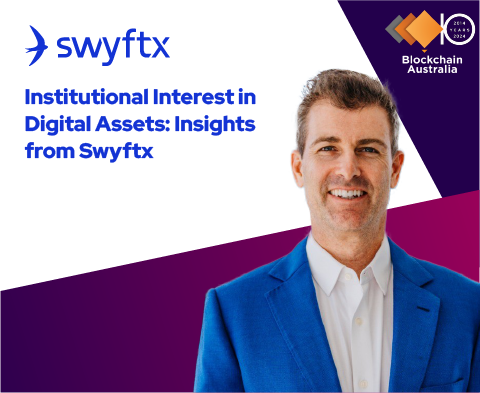
Institutional Interest in Digital Assets: Insights from Swyftx
Jason Titman, CEO at Swyftx, shares the latest trends in institutional interest in digital assets, including the role of regulatory frameworks and how Swyftx is navigating this evolving landscape.
In the Asia-Pacific region, we’re observing a sustained increase in institutional interest in digital assets, particularly in established cryptocurrencies like Bitcoin and Ethereum. Breaking this region down further, Asia is wholeheartedly embracing the digital assets industry. Simultaneously, Australians have shown a notable affinity for digital assets, with studies indicating that 1 in 4 Australians own crypto. However, our politicians and regulators have historically been less supportive of the industry.
A noteworthy trend in 2024 is a clear speculative demand for crypto assets in Australia, a shift from the trends seen in most of 2023. At Swyftx we have seen this via the increased demand for Solana. We’ve observed periods where demand for Solana has even overtaken Ethereum in volumes. This indicates traditional financial services institutions are starting to realise that cryptocurrency is a legitimate industry and they do not want to be left behind.
While many are not prepared to publicly endorse the asset class or support native crypto companies, institutions are creating their own digital assets teams and starting to invest heavily in the area. They know that blockchain, cryptocurrencies, Non Fungible Tokens (NFTs), and Real-world Assets (RWAs) are going to transform how business is done and how people invest and spend.
The importance of AUSTRAC registration
Swyftx is an AUSTRAC-registered crypto exchange. AUSTRAC is an Australian Government organisation responsible for developing and enforcing anti-money laundering and counter-terrorism financing rules and regulations in Australia. For first-time investors, an AUSTRAC-registered exchange means that the exchange works with local authorities to prevent, detect, and respond to criminal abuse of the financial system. AUSTRAC registration provides a level of certainty, security, and trust for Australian investors. At Swyftx, we have a duty to protect the community from serious and organised crime. This makes AUSTRAC registration essential for building trust in the digital assets industry and among crypto investors.
Managing volatility and risk
Most institutional clients have their own risk frameworks and sophisticated risk models to manage their investments. At Swyftx, we focus heavily on high-net-worth individuals and entity accounts, including SMSFs. These customers may not have the same level of sophistication in managing the risks of their investments. Financial education is something we are passionate about at Swyftx. As a result, we provide comprehensive market analysis, research reports, and risk management tools to help investors navigate the unique dynamics of digital asset markets. We have also invested heavily in our ‘Learn’ online training modules, developing a large library of articles and courses, and training our 24/7 customer support team. Additionally, we have a dedicated VIP trading team to support our larger customers and entity accounts.
Merging DeFi and TradFi
Research shows that around 40% of young people see crypto as an asset class that offers opportunities, and over 90% are dissatisfied with the current financial system. These statistics provide a platform for DeFi to merge with TradFi. Currently, most TradFi products exist in silos, and customers need to go ‘off ramp’ to go back ‘on ramp’ when trying to combine DeFi with TradFi, making for a clunky user experience.
Crypto and DeFi started as speculative asset classes, but we are now seeing crypto being used for payments and transfers. I believe we will see crypto evolve into a third pillar, becoming a new type of application platform where people can build in a decentralised way. Decentralised identity, social networks, scientific research, and more will be supported by cryptocurrencies, blockchain, and Web3 technologies.
In an ideal world, the merger of DeFi and TradFi on a platform like Swyftx would create a seamless financial ecosystem where decentralised finance enhances transparency and efficiency while embracing the stability and regulatory compliance of traditional finance. This convergence is starting to materialise.
We believe this is a win-win for consumers, who are currently constrained by inefficient products and are locked out of the system. There is over $120 trillion in customer money globally that cannot access the traditional financial system. Crypto will change this, becoming a medium of financial inclusion for people forgotten by governments and elites. As one example, the global SWIFT transfer system takes anywhere between 3-4 days to complete and costs over 50 to 100 times more than crypto transfers. Another example is T2 (two-day) settlement of stocks – DeFi could enable instant settlements and delivery, and offer those services for more than just stocks.
Overcoming barriers to institutional adoption
The most significant barriers to institutional adoption of digital assets today are regulatory uncertainty and the high volatility of crypto assets. There is also a lack of credible education about this emerging asset class, with the industry having a perception of scams. Combine this with social media influencers that spruik the lifestyle that crypto offers. As a result this has created distrust in the ecosystem. Web3 businesses like Swyftx need to focus on transparency, security, user experience and education.
At Swyftx, we have developed our Learn platform to empower and provide financial education to users of all experience levels, available for free. We curate our own research, insights, and workshops to address simple questions like, ‘What is Bitcoin?’ We have also developed a ‘Demo’ version of our platform for customers to experiment with before making real-world trades. We are strong advocates for regulation, contributing to numerous government submissions for our industry.
The lessons for Web3 businesses
In my experience, Web3 businesses need to understand that we are asking people to invest in a new form of money in an unregulated industry where financial advisors cannot provide guidance. Additionally, the industry is burdened by a perception of scams, which further complicates the adoption process. These obstacles act as barriers that we need to overcome when attracting new customers.
Many people simply don’t trust the ecosystem yet and don’t understand it properly. The industry needs to do more to ensure trust and educate both its customers and potential customers. Web3 businesses should be held to the same standards as traditional businesses, focusing on transparency, security, user experience, and education. At the end of the day, we are all working to foster the adoption of a new asset class.
By focusing on these pillars, we can build a more inclusive, transparent, and efficient financial future.
You can catch Jason Titman on 12 June, Day 2 of Blockchain Week where he will discuss
Institutional Adoption of Digital Assets: Barriers and Pathways to Integration. In the meantime you can connect with Jason on Linkedin.
